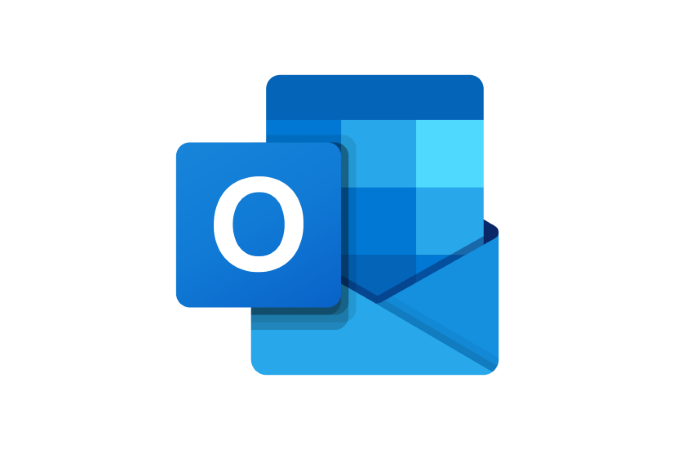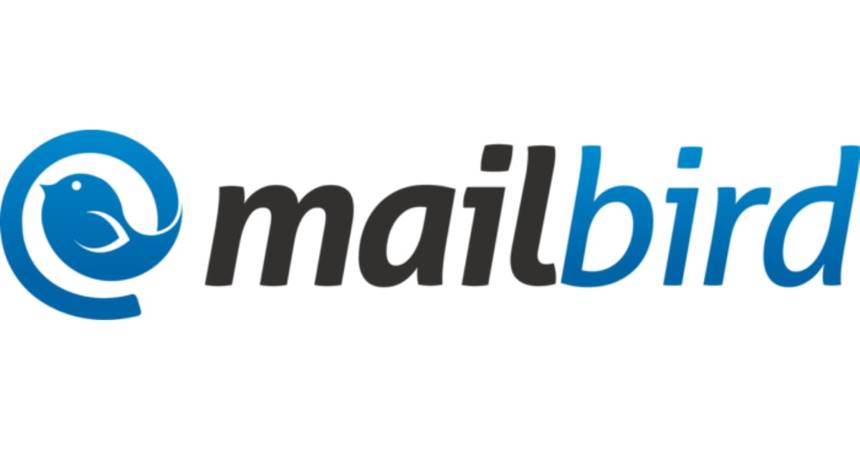What is the best email client?

Share this guide:
Last updated: 26 January 2023
What is an email client?
An email client is primarily a platform from which you can send and receive emails. However, they are different to web or cloud-based email services like Gmail in that they are downloaded as a program directly to your computer.
Typically, email client software lets you mange multiple accounts in one place, and any emails you send or receive are saved on your device, as opposed to a cloud. This, along with the fact that you can only access your account from one computer, adds an extra level of security that webmail services can’t provide.
The best email clients in 2023
Let’s take a look at the best email clients available right now so you can weigh up which one is right for you:
1. Outlook (Best for security)

| The good: | The bad: |
|---|---|
| Easy to use interface and navigation | Requires a subscription |
| Compatible with multiple devices | Not compatible with some Google apps |
| High level of security | Functionality is limited on Chrome and Firefox |
One of the most well known email clients, Microsoft Outlook is a part of Microsoft Office Suite and has been around almost as long as the internet itself. Launched as Hotmail all the way back in 1996, it was re-branded as Outlook in 2012.
It integrates seamlessly with other Microsoft applications, including Outlook Calendar and Outlook Contacts, as well as third-party apps like Gmail and iCloud, allowing you to manage all your clients and appointments in one place. This makes it the preferred choice for the majority of businesses in the UK.
Outlook can be bought either as part of the Microsoft Office Home & Business Suite 2021, for a one-off fee of £249.99, or as part of a Microsoft 365 subscriptions, which starts at £4.50 per user per month.
Pros of Outlook
Some advantages of Outlook include:
- Easy to navigate: Just like other Microsoft Office products, Outlook is user-friendly and very easy to operate. One feature that makes Outlook extra accessible is the in-built search bar, which helps users find specific inboxes, settings, and tools, allowing you to easily jump from one thing to another with utmost ease.
- Can be used on multiple devices: Mobile, desktop, your dad’s computer, your best friend’s phone, whatever device you’re on, you can log into your Outlook account simply by visiting its website. The app can also be downloaded onto any device, which will give you real-time email updates and notifications.
- Well secured: Microsoft Outlook is excellent when it comes to protecting users from malicious attacks. It’s known for its reduced spam activities andprotection against malware attempts and phishing. For this reason, it’s very difficult to infect an Outlook user’s computer or web mail servers simply by sending malicious content. Outlook will scan for keywords commonly used in spam emails and content with hidden viruses, and warn you about any possible spam and malicious activity.
- Can serve as your very own PA: With its ability to set tasks, schedule appointments, and set reminders, Outlook can be used as your very own personal assistant. This is highly important for businesses, as forgotten tasks will only lead to reduced productivity.
Cons of Outlook
Below are some problems and disadvantages of using Microsoft Outlook:
- Cost: Subscriptions are required for using Outlook, with the option for making monthly or yearly payments. But with so many email clients being free, this makes Outlook a bit inconvenient, especially if your financial situation isn’t top-notch.
- Integration: As a result of its affiliation to Microsoft, Outlook tends to lack some widely-used third-party programs including Google Calendar and Google Meet. Microsoft does have its own alternatives, but people who regularly use Google services may find it difficult to utilize the full functionality of Outlook.
- Too much functionality: Many people have complained that Microsoft Outlook has too much functionality, feeling this has as over-complicated basic features like composing emails and making schedules.
2. Thunderbird (Best free email client)

| The good: | The bad: |
|---|---|
| Completely free | Known to crash |
| High level of security | Lack of features compared to rivals |
| Easy to use | Tired interface |
| Automatic updates |
One of the best options for those on a budget, Mozilla Thunderbird is completely free to use and a worthy alternative to subscription-based email clients like Microsoft Outlook.
Thunderbird is also highly customisable. It’s default user interface may not be the most stylish around, but you can change the colour theme, layout and appearance to your preferred settings. It also integrates well with a number of third-party apps, allowing you to further customise features such as functionality and security.
Mozilla Thunderbird can support an unlimited number of users on one account, all completely free, while its also available in up to 65 languages. This undoubtedly makes Thunderbird one of the best free email clients around.
However, while Thunderbird works seamlessly on any Windows laptop or desktop, it’s not yet available on either iOS or Android. This means you can’t manage your emails on your smartphone or tablet while on the move; you’ll need your computer and a stable WiFi connection.
Pros of Thunderbird
Some pros of Thunderbird include:
- Excellent security: Thunderbird has a wide array of security and privacy benefits that will shield the average user from harmful content and cyberattacks. Some of these features include spam filtering, digital encryption of messages, effective password management, and remote content in messages.
- Zero cost: Thunderbird is absolutely free. There are no in-app payments, and it requires no form of subscription. This is a major advantage of Thunderbird over Outlook.
- Easy accessibility: Thunderbird supports many chat features which enable its users to contact business associates via Twitter, Facebook Chat, XMPP, and Google Talk without having to download any third-party app.
- Automated updates: Thunderbird regularly checks for updates to the latest version of its software. When a new version is released, it simply sends notifications to its users. And while these updates are important, they’re generally fairly small so take very little time at all.
- Customizable function: Personalising your email accounts with Thunderbird is extremely easy, giving you the ability to handle your mailing experience the way you want to.
Cons of Thunderbird
Some of the downsides to using Thunderbird include:
- Prone to crashing: When attempting to send or open emails that contains large files, many Thunderbird users have reported that the software tends to crash.
- Outdated interface: The interface of Thunderbird is very outdated, like 90s kind of outdated. Although you can customise your interface with a choice of colour schemes, it’s not the most aesthetically-pleasing email client.
- Less in-built features: Although Thunderbird has recently added features such as an in-built calendar system, it had already gained a reputation of lacking many features and apps that come as standard with other email clients.
3. Mailbird (Best for third-party app functionality)

| The good: | The bad: |
|---|---|
| Control all your email accounts in one place | Requires a fee |
| Very fast | Poor at separating important mail from junk |
A highly flexible email client with a stylish, customisable user interface, Mailbird is a decent alternative to better-known names like Outlook. It supports a large number of third-party apps and email services, including Outlook and Gmail, allowing you to manage all your email accounts in one place.
It can also be integrated with instant messaging and social media apps like WhatsApp, Twitter, and Facebook, as well as vital business-minded software like Slack and Dropbox. This all makes Mailbird one of the most diverse and functional email clients out there.
Mailbird also comes with a few nifty features that set it apart from its rivals, including the ability to unsend messages and a Snooze mode which allows you to prioritise important messages and easily come back to other non-urgent emails later.
Mailbird is available as a personal suite as well as a business package. While Mailbird Personal starts at £37.74 per year, or £1.69 per month, you can upgrade to Mailbird Business with priority support for £86.70 per year, or £2.63 per month. This makes it significantly cheaper than the other top email client subscription service, Outlook.
Pros of using Mailbird
Here are some of the benefits of using Mailbird:
- Unified mail: With Mailbird, you can keep track of all your emails from any account, all in one place, making the management of your mail, and business, that much easier.
- Postponing emails: You can ’snooze’ emails with Mailbird, putting them aside to respond to later. You get options like “later today”, “tomorrow”, and “next week”, when Mailbird will automatically take the snoozed email to the very top of your inbox list. This helps you to not forget any emails you were planning on returning to later.
- Basic email handling is particularly fast: Searching and sending emails is very fast with Mailbird, giving it an edge over some other email clients. Generally, just the feel of Mailbird is fast. You don’t have to wait for the most basic things to finish loading before having access to them.
Cons of using Mailbird
Let's take a look at some of the cons of using Mailbird:
- Email grouping could be improved: Some email clients will automatically identify important mail for you and bring it to the top of your list, but with Mailbird, you must find it yourself and manually move it to your ‘Starred’ folder. It also doesn’t yet have its own spam filter, but relies on the filter of your email service provider to identify junk mail.
- It comes at a cost: Just like Outlook, Mailbird is not available for free. While this may put many people off, we believe that the unified mail feature of Mailbird, together with some other useful features, is worth paying the money for.
4. Spike (Best for user experience)

| The good: | The bad: |
|---|---|
| Manage all your email accounts in one place | Some features are behind a paywall |
| Fast and easy to use | Calendar feature can be improved |
| View emails in a chat-like list |
With a unique design and user interface, Spike is a good choice of email client for those looking for something a bit different. Unlike the vast majority of email clients and services, Spike enables users to view their email in chat-like form. It looks more similar to WhatsApp than Gmail, and all your emails are sorted by senders/recipients as opposed to dates.
It also comes with a number of helpful features including the ability to send and receive voice and video messages, make video calls, and have group chats. However, while the interface is modern, sleek, and unique, it currently isn’t customisable as is the case with some other email clients.
Spike is available on multiple platforms, including Windows, Mac, iOS, and Android. This means it should work on any device you have, whether its a desktop computer, smartphone or tablet. And like Mailbird, you can integrate all your email accounts in one place, including Outlook, Gmail, and Yahoo Mail.
You can get Spike either as a personal or business email client. While the personal version is free and allows unlimited number of users, you won’t get all of the features unless you sign up to the business package, which starts at less than £10 a month.
Pros of Spike
Some of the benefits of using Spike are:
- Genius email sorting style: Spike’s email sorting skills are exceptional. Unlike traditional email clients where your mail is listed in the order of how recently you received it, viewing your Mail on Spike is a chat-like experience, with your emails sorted by people. Just like iMessage or WhatsApp.
- Unified emails: With Spike, all of your emails from multiple accounts can be compiled in one place, whether it’s from Outlook, Gmail, or anything else.
- Ease to use: It is very easy to use Spike, even when you’re using it for the first time. Everything is in one place, filtering is excellent, emails are well organized, and the UI is very modern.
- Speed: Spike is incredibly fast. From accessing the app to the customer service team, speed is one thing the Spike email client is no stranger to.
Cons of Spike
The drawbacks of using Spike include:
- Calendar integration isn’t effective enough: The calendar feature isn’t as effective on Spike as it is with other email clients. For example, you don’t have the option of making calls directly from an invitation.
- Not every feature is free: Downloading Spike, creating an account and using its basic features is all free. However, you won’t get all of the features unless you subscribe to the business version of the email client.
So, which email client is best for me?
When searching for a good email client to use at home or at work, it is important to consider its value for money, the ease of use, its features, its customer support, and of course your own personal preferences. With all this considered, the email clients given in this article are great choices to start with.
We are an independent and impartial price comparison website.
Our services are 100% free to use.
usave.co.uk is supported by its users. When you make a purchase through links on our site, we may earn an affiliate commission.
